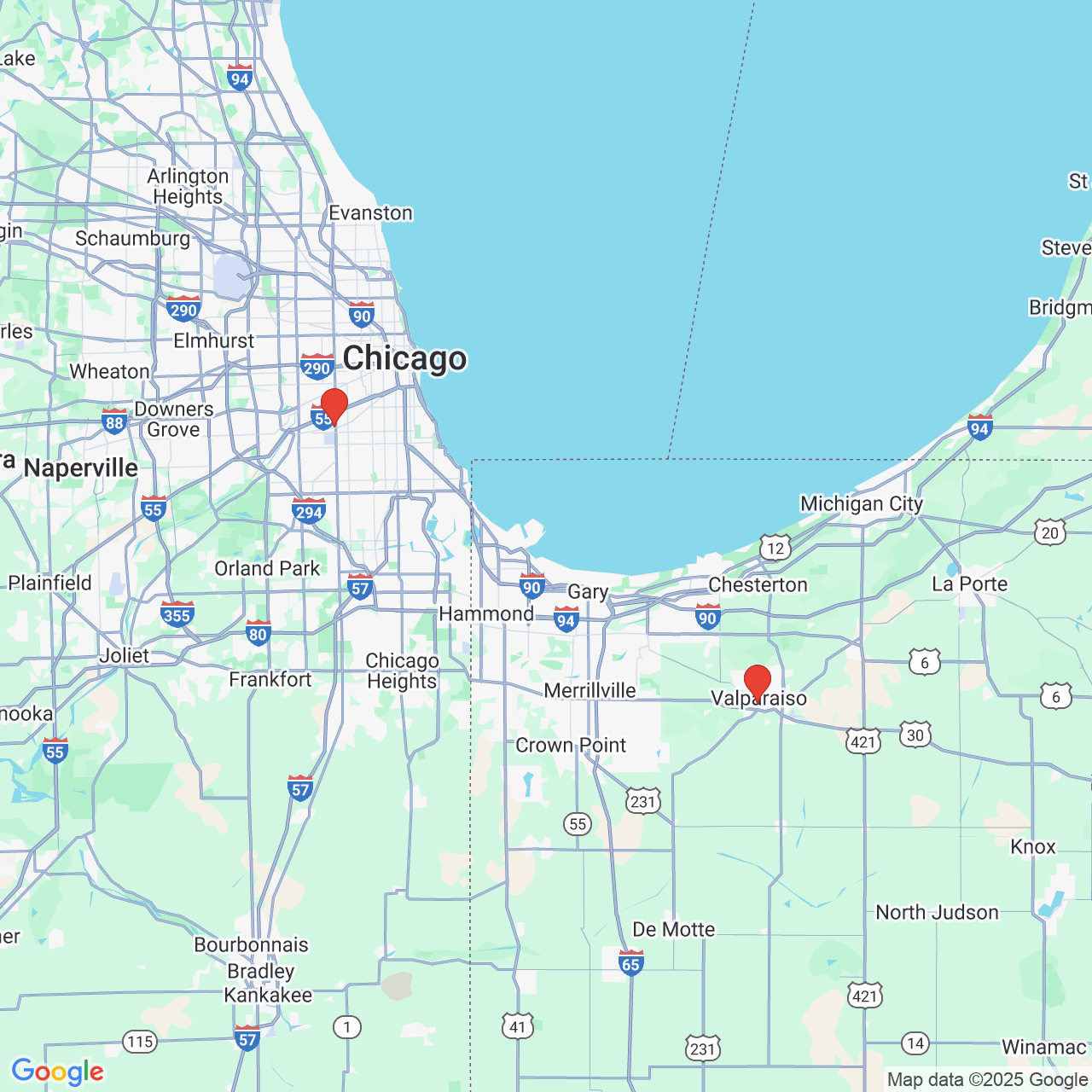
Macular Degeneration
What Is Age-Related Macular Degeneration?
The retina is the light-sensitive tissue located at the back of the eye that detects light and sends those signals to the brain. The central portion of the retina is known as the macula.
Macular degeneration involves the loss of central vision due to thinning of the macula. The condition is incurable, but early detection and treatment can slow down the rate of vision loss.
Types of Age-Related Macular Degeneration
Dry AMD
Dry AMD is the most common type of macular degeneration. The dry form occurs when yellow deposits called drusen appear beneath your macula. Drusen continue to grow on the retina, causing separation and thinning of the macula.
Wet AMD
In wet AMD, abnormal blood vessels develop under the retina. During the wet form, blood may leak into the eye, causing the macula to swell and leading to permanent damage. Wet AMD can arise as a result of dry AMD or it can develop on its own.
How Common Is Age-Related Macular Degeneration?

AMD Risk Factors
/
- Advanced age
- Race (white)
- Family history
- History of smoking
- Obesity
- Heart disease
Prevent and Control Macular Degeneration
Have You Suffered from Vision Loss? Contact Primary Eye Care Associates Today
If you are over the age of 50 and have experienced a loss of central vision, it's important to speak with the doctors of Primary Eye Care Associates. During a comprehensive eye exam, we will review your macular degeneration symptoms and risk factors and discuss your concerns in greater detail.
Dr. Steven Chander can develop a custom treatment plan just for you. His goal will be to help prevent future vision loss through lifestyle changes and proper supplementation. If needed, they can consult with ophthalmologists for more advanced care.
If you live in Chicago, IL, and would like more information about treating macular degeneration, contact our practice online. We are located in Garfield Ridge, IL, near Chicago Midway International Airport. You can also reach us by phone.
Call Us Today
(773) 735-6090

5 Stars for Primary Eye Care Associates Our Doctors Help the People of Chicago, IL, See
What a wonderful place, very clean, thoughtful hardworking staff, and stupendous eye doctor. The staff speaks Spanish and give you all their time. Definitely will recommend to anyone above 5 stars!
View On GoogleDr. Chander and staff were very professional and knowledgeable. They explained every step of our experience clearly and were very patient with our questions. Excellent place. Thank you all.
View On GoogleMacular Degeneration Diagnosis
Comprehensive Exam
Our optometrists will conduct a thorough eye exam to diagnose macular degeneration, assessing your central vision and the overall quality of your eyesight. We will dilate your pupil and use a specialized instrument to view your retina and macula. We want you to share any concerns you may have about macular degeneration that seem relevant. The Primary Eye Care Associates team is here to answer any questions you may have about age-related macular degeneration.
Advanced Testing
Our doctors may also use advanced diagnostic tools to uncover more complicated cases of macular degeneration. An OCT (optical coherence tomography) test uses ultrasound to detect abnormal blood vessels around your macula. Our OCT testing can also detect signs of other eye diseases, such as glaucoma.
Early Detection and Risk Assessment
If you are not yet experiencing age-related macular degeneration, our team can determine your risk for developing the condition as you get older. We can use the QuanitfEye® test to measure macular pigment levels. Low pigment levels indicate that you have a higher chance of developing macular degeneration. If you are at an increased risk for macular degeneration, nutritional supplements can help reduce your chances of developing the condition.
Supplementation for Macular Degeneration Slowing the Progress of Vision Loss
Although there is no cure for age-related macular degeneration, aggressive nutritional therapy can decrease the rate of macular damage. Combined with lifestyle changes and the use of assistive vision devices, we hope to restore the overall quality of your life while maintaining your current vision quality.
The team at our Chicago, IL, practice will prescribe an aggressive regimen of zinc, antioxidants lutein and zeaxanthin, vitamin C, vitamin E, and beta carotene. These are known as AREDS/AREDS2 supplements and are specially formulated to address vision loss caused by age-related macular degeneration.

What Does "AREDS" Stand For?
/
AREDS stands for Age-Related Eye Disease Studies. AREDS and AREDS2 were large clinical trials sponsored by the National Eye Institute (NEI). The AREDS and AREDS2 trials were essential for developing the supplement formulas we provide to AMD patients.
Advanced Treatments for Age-Related Macular Degeneration
Additional care may be necessary if your age-related macular degeneration does not respond to lifestyle changes and AREDS/AREDS2 supplements. The goal will be to limit further vision loss through more advanced treatment options.
The doctors of Primary Eye Care Associates can reach out to other vision specialists in the Chicago, IL, area. We work with trusted ophthalmologists and can refer patients to them when warranted.
Using a combination of noninvasive and more advanced therapies, our eye doctors can help people with wet or dry macular degeneration avoid uncontrolled vision loss.
Patient-Centered Vision Services People in the Chicago, IL, Area Share Their Experiences
They are so friendly and helpful! I was having issues with my eyes for months and I came here. A week later my eye issues are almost gone! I’m also very pleased with the social distancing practices.
View On GoogleVery friendly staff the doctors are very thorough with the exam. Great selection of eye glasses and sunglasses. Definitely recommend this practice for the entire family.
View On Google








